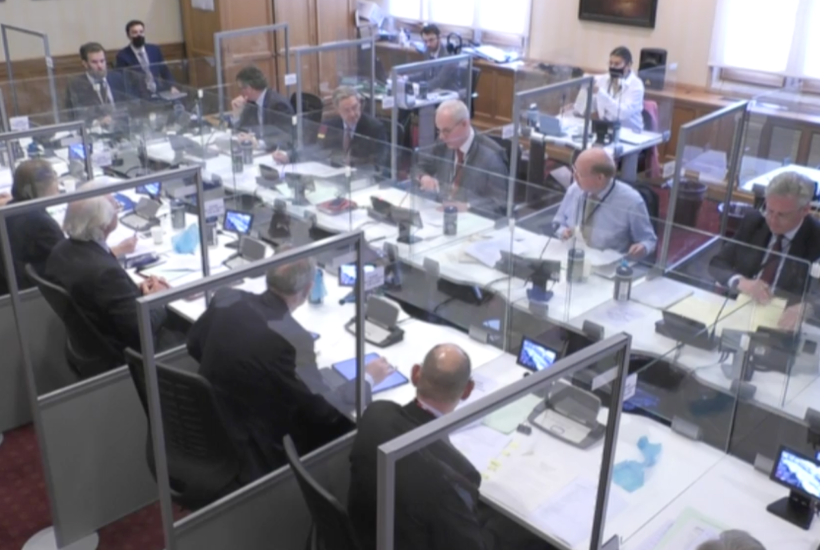Speak to battle-scarred Tory veterans of the 2017 snap election and they’ll regale you with horror tales about animal sentience. A little-noticed vote to reject the inclusion of the subject in the Withdrawal Bill quickly blew up into one of the major election issues, with the Independent running viral articles on the subject with inflammatory headlines that were widely shared all over social media sites. Some still credit the issue with helping to denying Theresa May her much-craved majority in that election.
In the years since then the Conservatives have handled the issue of animal welfare with extreme caution, well aware of its political volatility. Indeed shortly after the election, the then Environment Secretary Michael Gove introduced a bill on this subject but was forced to overhaul it after MPs noted it would open every government policy to judicial review. Three years on, the idea has now been resurrected in the recent Queen’s Speech, forming the flagship bill in a threadbare legislative programme.
Having already taken a bruising in the Lords chamber last month, the bill yesterday headed to the Upper House’s Grand Committee. An ominous sign of what was to come was indicated by the number of amendments laid down: 62 on a six clause, three page bill. The noble lords and ladies, resembling cashiers in a high street bank peering out behind their perspex glasses, spent some five hours eviscerating the proposed changes.
Objections were varied but most centred on the ‘Animal Sentience Committee’ which the government proposes to establish through the somewhat limited legislation. Not for nothing did the newly ennobled Lord Hannan remark on the juxtaposition of a ‘rather skeletal, emaciated, haggard, malnourished Bill that can be expanded almost at random in any direction.’
Such a committee would have its members appointed by the Environment Secretary and ‘may’ produce a report in relation to ‘any government policy’ that ‘is being or has been formulated or implemented’. These reports will set out the committee’s views on ‘whether, or to what extent, the government is having, or has had, all due regard to the ways in which the policy might have an adverse effect on the welfare of animals as sentient beings’. Critics therefore fear it will lead the government open to a barrage of judicial reviews.
Not for nothing therefore did the veterinary surgeon Lord Trees table his amendment restricting the committee to merely policy that comes into effect after the committee is established, in order to prevent retrospective reviews. Former criminal lawyer and Countryside Alliance president Baroness Mallalieu asked whether the committee will ‘pick up and choose for itself what it examines’ and warned the committee ‘has the makings of a giant and every expensive quango’ if ‘it is to roam across every government department and every policy, which would include aspects of defence, medicine and trade, quite apart from agriculture.’
Baroness McIntosh meanwhile asked why such a body was needed when the Animal Welfare Committee was already in place while for Lord Hamilton, it risked ‘new layers of bureaucracy’ boasting ‘enormous powers to interfere with other areas of government.’ For Lord Mancroft there was the question of animal rights advocates using the committee for an activist agenda, building on Lord Howard of Rising’s comments about pest control and Lord Moylan fears that animal science would be affected.
The Earl of Kinnoul similarly raised the spectre of ‘unintended consequences’ with Lord Marland warning that ‘unless strong terms of reference are imposed on the committee, we will end up destroying our countryside pursuits and making life virtually impossible for our farming and fishing community.’
The Earl of Caithness remarked that he could ‘see the judicial review process being used more heavily on this Bill than in most other legislation we have considered’ while no less a figure than Lord Etherton, the former Master of the Rolls, went so far as to say:
The Bill is entirely negative, in the sense that it seeks to impose restrictions on the way people go about their work, the way they relax and enjoy themselves, and the ways in which they can give effect to their religious values. Such restrictions go to the heart of what we regard as a diverse society in a democratic state. They go to the heart of freedom of personal conduct and belief.
Former Cabinet minister Lord Forsyth meanwhile questioned just how independent the committee would be, given that the government has claimed that committee members would be replaced if they did not perform. The legislation itself did not escape the former Scotland Secretary’s ire, with Forsyth telling peers ‘I am an extinct volcano who left government in 1997’ but that ‘in my day, if one had come to the Lords Committee with a Bill like this, it would not have got past the front door.’ Even Jenny Jones, the former Green party leader agreed with Forsyth ‘that we are getting some very poorly drafted Bills, and perhaps he could give some advice to the Government on how to improve that situation.’ Ouch.
Responding on behalf of the government was Richard Benyon, a former Defra minister in the Commons now recast in ermine in the Lords. Benyon is a popular member of their noble lordships’ house but even he struggled with the barrage of critical amendments. He told the peers how he manfully tries to sail ‘my route between Scylla and Charybdis’ of the opponents and proponents of the bill, adding drily that: ‘we will be studying Hansard very closely on what has been discussed today and we will reflect on trying to make this Bill more workable for all sides of the House.’
The legislation may aim to spare animals pain, but so far it’s caused nothing but headaches for Defra officials. For their sake, let’s hope the definition of sentient creatures expands to include Whitehall mandarins too.
Got something to add? Join the discussion and comment below.
Get 10 issues for just $10
Subscribe to The Spectator Australia today for the next 10 magazine issues, plus full online access, for just $10.





















Comments
Don't miss out
Join the conversation with other Spectator Australia readers. Subscribe to leave a comment.
SUBSCRIBEAlready a subscriber? Log in